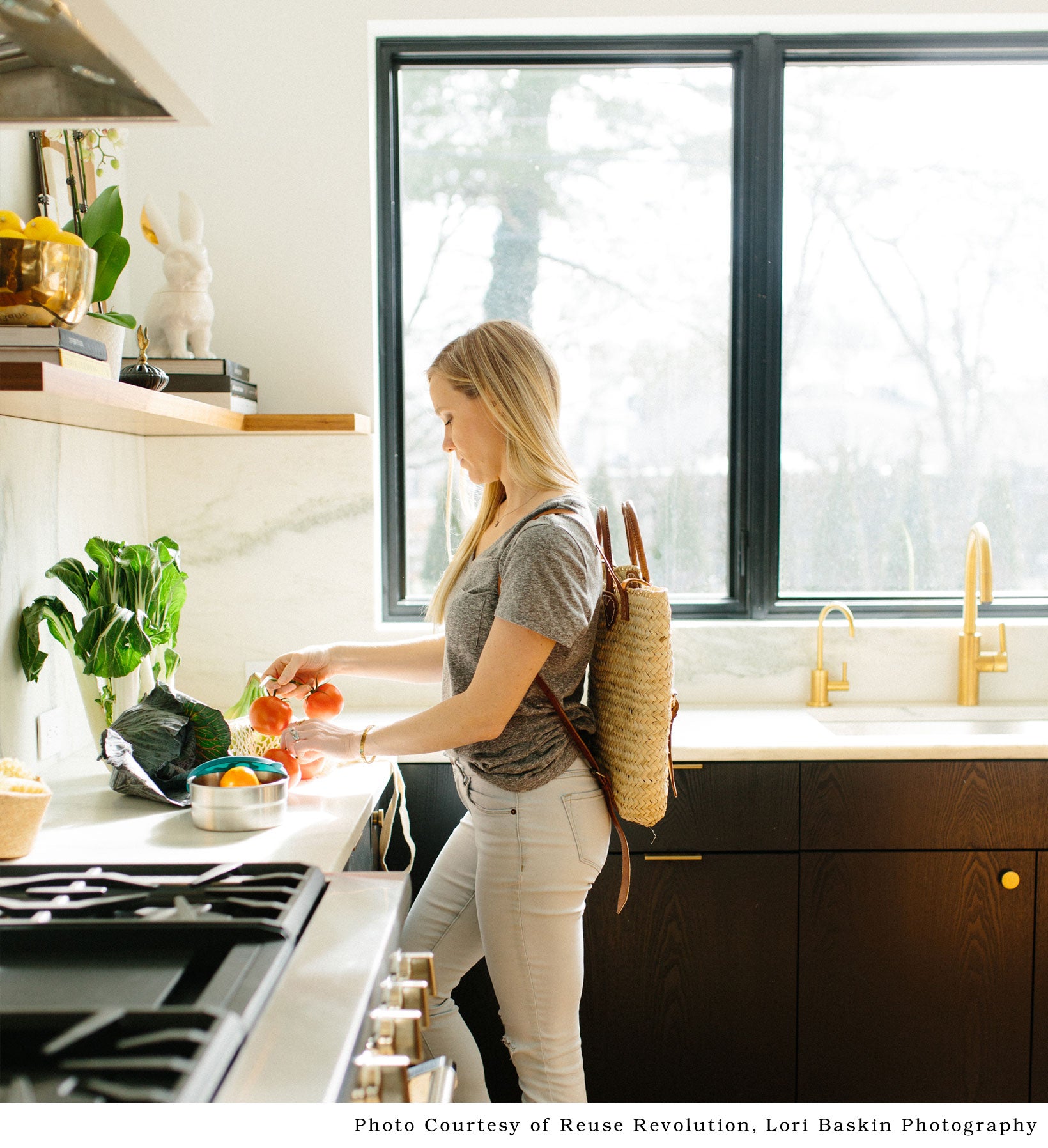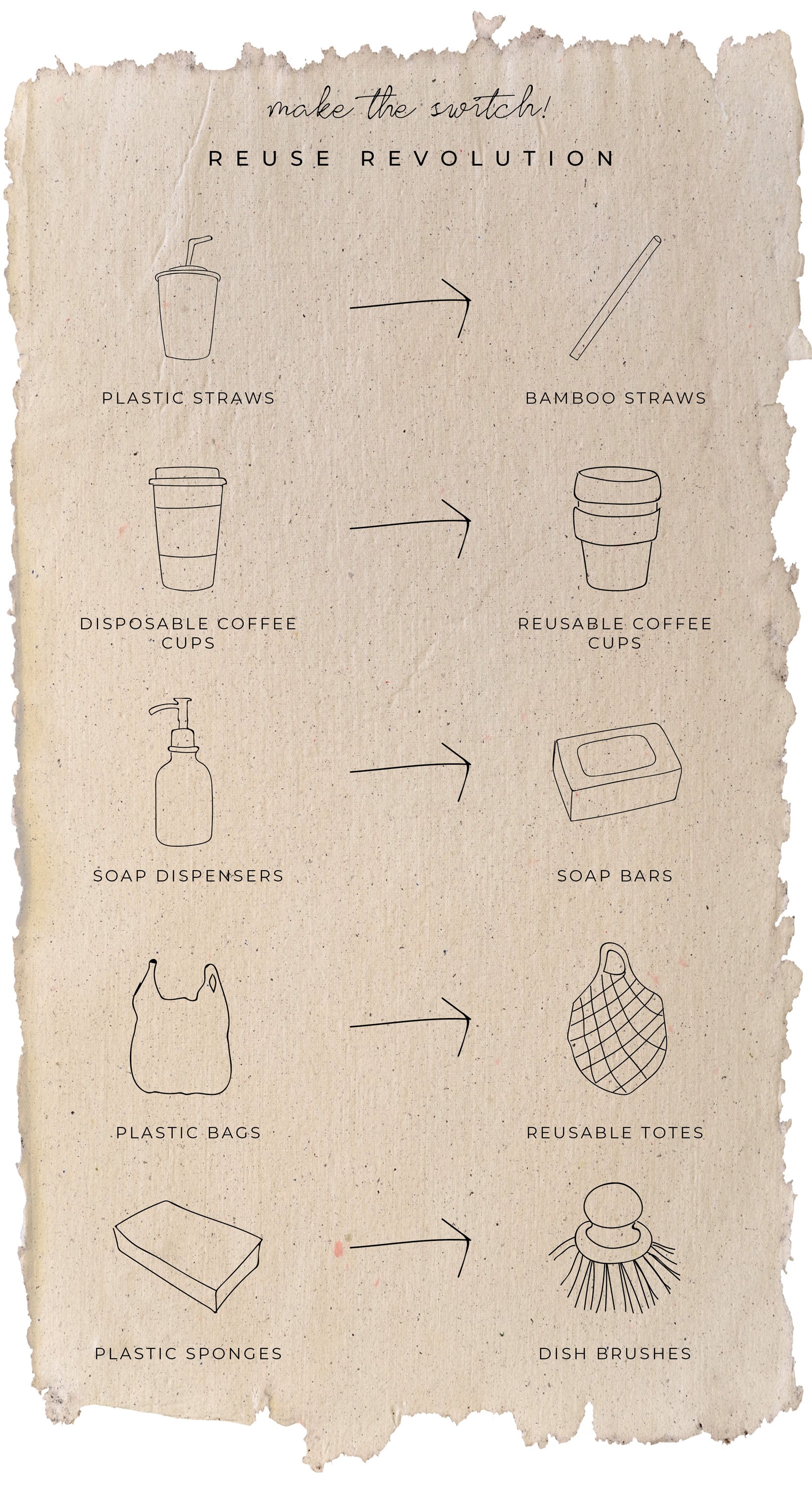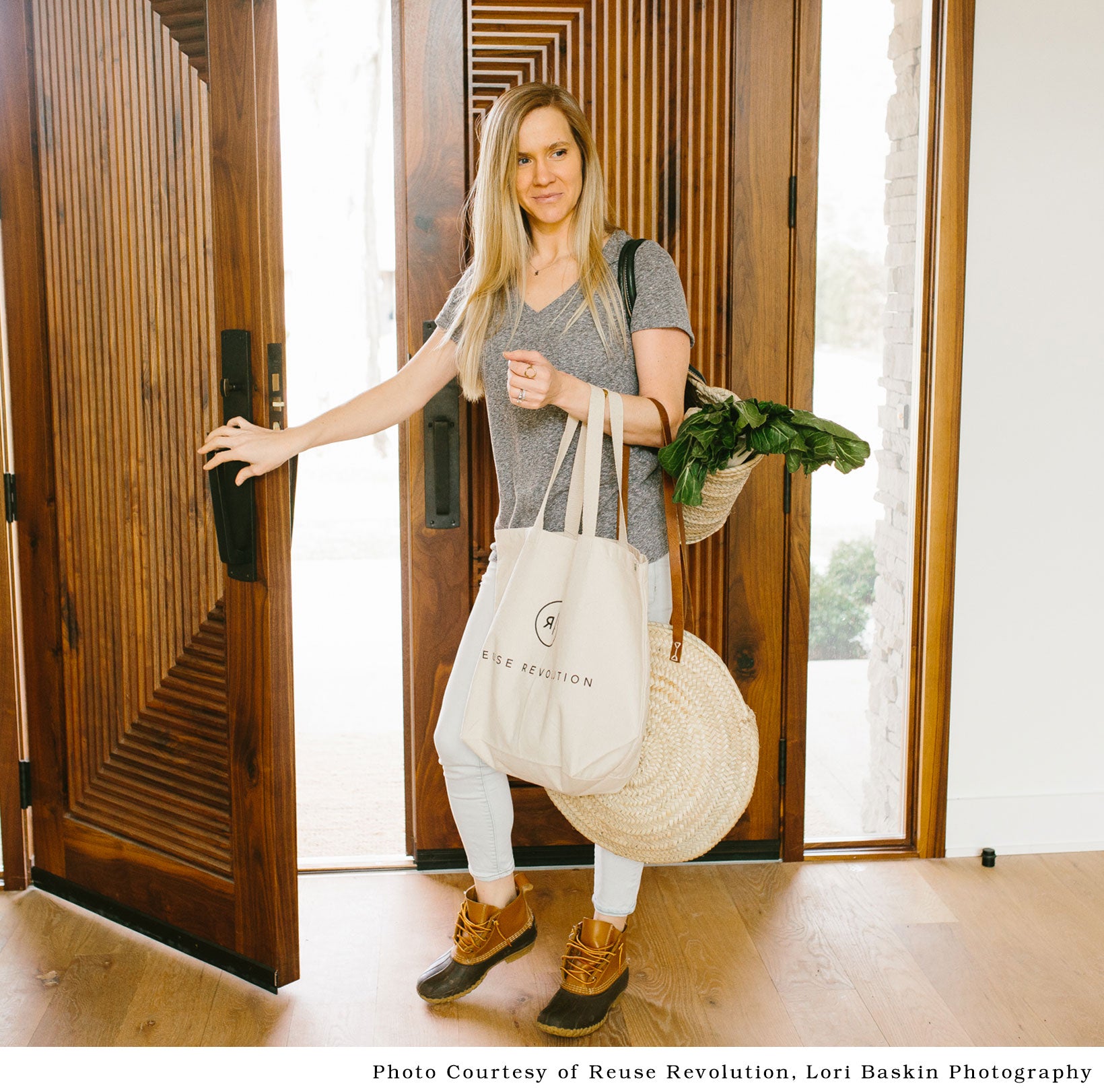CH4: P4
5 Ways to Go Green in the Kitchen

“Sustainable” and “eco-friendly” aren’t just buzzwords anymore. We are seeing more and more people embrace sustainability and it all starts with small, everyday decisions. We asked our friend, Christy, the founder of Reuse Revolution, to share a few tips for sustainable living with us!
We all know to bring reusable bags to the grocery store, but what else can we do? Start by focusing on one room in the house. One of the biggest areas of waste in a home is the kitchen. Here are five easy ways to go green in the kitchen!
1. Support local.
If you don’t have the means to grow your own private garden, support local farmers by shopping at Farmers’ Markets when you can. We are lucky to be surrounded by many local growers in Columbus, Ohio. You can shop at Farmers’ Markets for three out of the four seasons of the year!
If you aren’t a Farmers’ Market kind of person, look for signage at the grocery store! Many grocery stores have made a commitment to highlighting local farmers. By purchasing fresh produce or groceries from local sources, you are reducing the carbon emissions created by “food miles”. When food is transported long distances, it adds steps to the production process and hurts the environment by keeping transport trucks on the road longer.
Quick tip! Opt for the ugly fruit. Studies show we throw away perfectly good food simply because it doesn’t look a certain way. Keep an eye out for discounted produce bins, where you can find the misfit loners – they’re delicious!
2. Limit single-use items.
The average American throws away 4.5 pounds of trash every day. We can change this! Say no thank you to plastic straws and other single-use items in order to reduce waste. Bring your own reusable coffee cup to the café or opt to eat in. These simple actions will help decrease the amount of waste you contribute daily. 
3. Trash Audit
This sounds funny and weird. Who goes through their trash? People who want to find out how they can reduce waste, that’s who! A trash audit doesn’t have to be difficult or messy. Just glance in your kitchen trash can and assess its contents. Are there single-use items you can replace with eco-friendly options? Are there packaging items in your trash that can be recycled? If your pizza box isn’t greasy, you can recycle that! If you’re throwing away paper, glass, or aluminum, you can recycle those!
According to SWACO, 70% of Columbus’ landfill’s contents could have been recycled or composted. Can your trash be recycled? SWACO and Reuse Revolution are great resources if you want to learn more about what is accepted.
4. Composting
Composting is important and necessary because once food scraps are in a landfill, they do not properly break down because there is not the same air circulation in a landfill as there is with proper composting The food scraps that end up in the landfill contribute more methane to our environment, which is one of the most potent greenhouse gases. When you think about the entire population of the planet, all of our food scraps start to add up!
Many people worry about rodents, bugs and stinky smells when they think of composting. What if I told you, it doesn’t have to be that way? We use a tumbler bin style in our backyard, and we LOVE it. We keep it up off the ground and contained where critters can’t access it. As long as you’re including leaves and brown items from your yard in combination with your kitchen food scraps, you won’t have a stinky smell!
We use our compost every couple weeks to supplement any nutrients we want to give to our trees and bushes and our yard has never been happier. It is also saving us money because we no longer buy as much mulch or soil from the lawn and garden box stores!
If you’re not into the idea of having a tumbler bin or compost box in your backyard, many cities or private companies are now offering composting services. Find more information on that here. 
5. Switch up your shopping habits.
Here are some ways you can make a positive impact by changing a few simple habits!
Go plastic-free. It’s always best to refuse single-use plastic bags, but if you do happen to use plastic grocery bags they can be recycled at your local grocery store when they are clean and dry! Quick tip! Do NOT send plastic bags to the recycling plant, they tangle the machines and endanger the employees.
Bulk Grocery Shopping. This is a great way to avoid excessive packaging. There are bulk sections in most stores where you can fill up your own reusable containers with items you would like to purchase. Just remember to write down the item number, so the cashier can enter the item properly when you check out!
Meal Planning. When we are mindful about the items we are buying, we are wasting less. This will save you money and keep food waste to a minimum!
Want to learn more about eco-friendly living? Reuse Revolution's Community Tab is a wonderful resource for information. Check out Trove's tips for sustainable interior design too!
Cheering you on!
Christy


0 comments